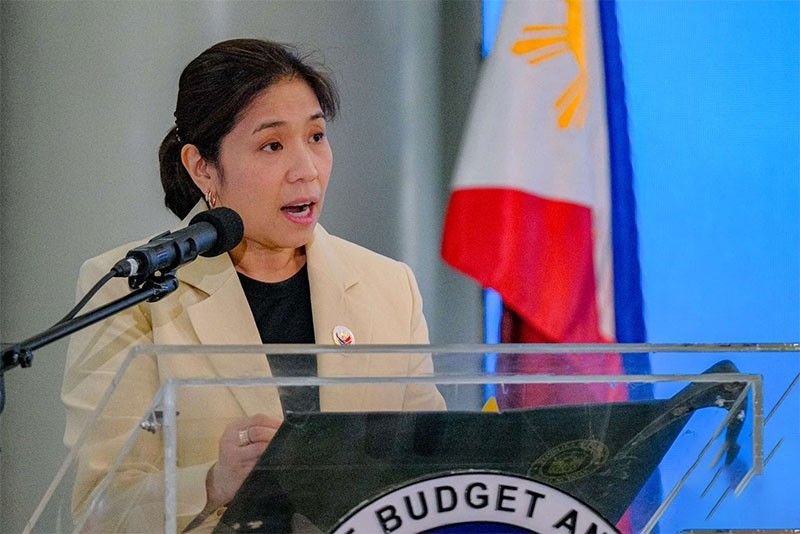Despite weaker-than-expected Q1 growth
MANILA, Philippines — The government economic team is not giving up on its 2025 growth target even after a slow first quarter performance and amid global uncertainties.
Development Budget Coordination Committee (DBCC) chair and Budget Secretary Amenah Pangandaman said the country’s gross domestic product (GDP) is still expected to accelerate in the remaining quarters on the back of domestic demand and better public investments.
“This is even amid global uncertainty, as domestic growth prospects supported by improving private consumption, including government infrastructure spending, provide a buffer against external headwinds,” Pangandaman said.
This developed even after the economy grew by just 5.4 percent in the first quarter, way below the 2025 DBCC target range of six to eight percent.
Nonetheless, Pangandaman said the full-year target is still achievable as the government remains committed to achieving its medium-term plans and long-term goals.
In particular, the 8.2 percent growth in capital spending of the government is seen continuing as the Marcos administration ramps up public infrastructure projects.
“We cannot emphasize enough the important role that government spending performance plays in stimulating the economy,” Pangandaman said.
“This is especially amid the expected slowdown in growth globally due to increasing economic uncertainty, US trade policy changes, slowdown in China’s economy, persistent geopolitical tensions and fluctuations in commodity prices, among others,” she said.
Last month, Pangandaman said it is still too early to tinker with economic growth targets for the year even with the potential impact of the reciprocal tariffs imposed by the US.
While the first quarter GDP was slower than expected, the budget chief said it is still promising that all major economic sectors of industry, services and agriculture grew.
On the demand side, household consumption, gross capital formation and exports and imports of goods and services also expanded.
Meanwhile, think tanks BMI and Pantheon Macroeconomics expect the Philippines to post a GDP growth of slightly above five percent this year amid weak global demand and uncertainties from the US tariffs.
BMI, a unit of Fitch Solutions, is maintaining its 5.4 percent growth projection for the Philippines, while United Kingdom-based Pantheon Macroeconomics is expecting the economy to grow by 5.3 percent even as the first quarter economic performance fell below expectations.
Both forecasts are below the government’s six to eight percent growth target for the year and lower than the 5.7 percent growth in 2024.
“While the latest growth figures pose some downside risk to our full-year forecast, we still think that the economy will achieve a growth rate slightly above five percent despite the backdrop of escalating trade tensions and slowing global demand,” BMI said.
“However, growth will be nowhere close to the 6.4 percent it typically manages,” it said further.
BMI said there are still some bright spots that could support economic growth this year.
“With inflation expected to ease to an eight-year low of 2.2 percent in 2025, this will provide some support to real incomes and, in turn, household spending,” BMI said.
Inflation averaged two percent from January to April of this year, within the government’s two to four percent target.
BMI also expects growth in government spending, which more than doubled to 18.7 percent in the first quarter from the previous quarter’s nine percent, to continue its momentum into the second quarter given the mid-term elections.
Pantheon Macroeconomics chief emerging Asia economist Miguel Chanco and Asia economist Meekita Gupta said government spending growth in the first quarter, however, could be a one-off and difficult to replicate with the fiscal consolidation drive off track.
As BMI expects the Bangko Sentral ng Pilipinas (BSP) to deliver another 75 basis points in interest rate cuts, it said investments could get a boost.
Last month, the BSP cut the key interest rate by 25 basis points to 5.50 percent.
Chanco and Gupta said investments, however, could be affected by uncertainty from the trade war.


